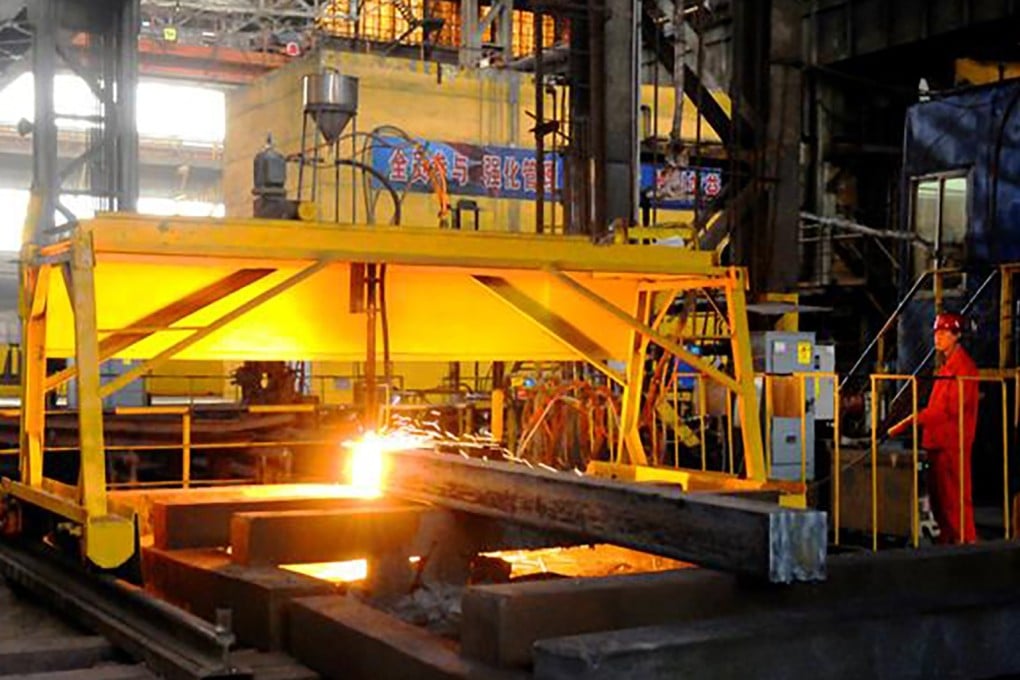Chinese steelmaker that cooked the books shows struggle to revive rust belt
- Shanghai-listed Fushun Special Steel was found to have fabricated financial numbers including for its inventory, earnings and fixed-asset investments
- Regulator fined the company US$87,200, named and shamed 45 of its executives and slapped individual fines on them too

As officials from China’s northeast report an improved economic performance, one of the region’s biggest state-owned firms has revealed the penalties it received for cooking its books, again throwing a spotlight on the complexity of reviving growth in the country’s rust belt.
Shanghai-listed Fushun Special Steel, a “penny stock” company controlled by Dongbei Special Steel, was found to have fabricated its financial numbers on multiple fronts including its inventory, earnings and fixed-asset investments between 2010 and the first three quarters of 2017.
The company made the disclosure in a statement filed to the Shanghai Stock Exchange, citing an investigation by the China Securities Regulatory Commission (CSRC).
Owned by the Liaoning government, the steelmaker inflated profit by 1.9 billion yuan (US$276 million) during that period by exaggerating inventory levels and reducing production costs, according to the statement that gave details of the CSRC findings.
The regulator condemned the company for its “prolonged illegal behaviour, [using] extremely bad means that involved huge amounts, seriously disrupting market order and causing serious losses for investors”.
Fushun was fined 600,000 yuan (US$87,000), while 45 of its executives – including former chairman Zhao Mingyuan – were named and shamed, and individually fined between 50,000 yuan and 300,000 yuan, the statement said. Zhao and four others were also banned for life from entering China’s capital markets.
